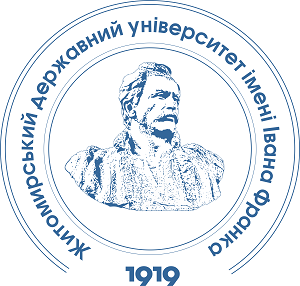PSYCHOLOGICAL READINESS FOR SOLVING PROBLEMS IN THE PROCESS OF CREATIVE THINKING ACTIVITY
DOI:
https://doi.org/10.32782/psy-2025-5-8Keywords:
creative thinking, task, strategy, psychological readiness, structural and functional analysis, constructionAbstract
The impact of information uncertainty on the process of solving complex problems is analyzed, as well as the relationship between problem limitations and personal characteristics of the person who solves the problem. The adaptive function of the psychological readiness of the individual to solve creative problems under conditions of extremity and information uncertainty is substantiated. The system-forming role of strategy in the organization of creative thinking activity is considered. It is emphasized the importance of taking into account the interaction of the effects of personal character and the actions of environmental factors when assessing the informativeness of indicators of the cognitive component of creative potential in terms of predicting the future creative achievements of an individual. Attention is focused on the dominant role of adequately constructed semantics to ensure the effectiveness of solving vital tasks. The essence of structural, functional and structural-functional design and their resource potential in relation to the construction of relevant information structures in the process of solving problems is substantiated. The components of a person's psychological readiness for creative thinking are analyzed. Psychological features of solving creative problems by high school students are considered. Behavioral activity of an individual is interpreted as a complex construction, determined both by the form of his response to the stimuli of the surrounding world, and by creative activity aimed at solving current problem situations. The functions of actions as a means of mastering the creative tools of activity and its results are considered. Determinants of personal development of high school students and its results are analyzed, in particular, objective achievements according to the level of harassment, which determines the level of complexity of the tasks desired to be solved. It is shown that the crisis of adolescence is determined by a significant gradient of deficit of prognostically necessary information for teenagers to solve actual problems. The possibilities of forming the psychological readiness of high school students for creative thinking activity in the process of educational work in schools and extracurricular education institutions are substantiated. It is presented developed by V.O. Molako the KARUS system as a tool for solving vital problems, its adaptive, corrective and developing potential.
References
Зеньковський В. В. Проблема психічної причинності. Київ, 1914. 408 с.
Моляко В. О. Творча конструктологія (пролегомени). Київ : Освіта України, 2007. 388 с.
Роменець В. А. Історія психології. ХІХ – початок ХХ століття. Київ : Либідь, 2007.
Bandura A. Social Learning Theory. Englewood Cliffs : Prentice Hall, 1977. 274 p.
Cropley A. In praise of convergent thinking. Creativity Research Journal. 2006. Vol. 18 (3). P. 391–404.
Finke R. A., Ward T. B., Smith S. M. Creative cognition: theory, research, and applications. The MIT Press, 1992.
Frankl V. Man’s Search for Meaning. Boston : Beacon Press, 2006.
Kim K. H. Meta-analyses of the relationship of creative achievement to both IQ and divergent thinking test scores. The Journal of Creative Behavior. Vol. 42 (2). P. 106–130.
Runco M. A., Acar S. Divergent thinking as an indicator of creative potential. Creativity Research Journal. 2012. Vol. 24 (1). P. 66–75.
Silvia P. J., Nusbaum E. C., Berg C., Martin C., O’Connor A. Openness to experience, plasticity, and creativity: Exploring lover-order, high-order, and interactive effects. Journal of Research in Personality. 2009. Vol. 43 (6). P. 1087–1090.






